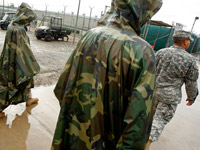IF you ask married people why their marriage works, they are probably not going to say it’s because they found their financial soul mate.
But if they are lucky, they have. Marrying a person who shares your attitudes about money might just be the smartest financial decision you will ever make. In fact, when it comes to finances, your marriage is likely to be your most valuable asset — or your largest liability.
Marrying for love is a relatively recent phenomenon. For centuries, marriages were arranged affairs, aligning families for economic or political purposes or simply pooling the resources of those scraping by.
Today, while most of us marry for romantic reasons, marriage at its core is still a financial union. So much of what we want — or don’t want — out of life boils down to dollars and cents, whether it’s how hard we choose to work, how much we consume or how much we save. For some people, it’s working 80-hour weeks to finance a third home and country club membership; for others, it means cutting back on office hours to spend more time with the family.
“A lot of the debates people have about money are code for how we want to live our lives,” said Betsey Stevenson, assistant professor of business and public policy at the University of Pennsylvania’s Wharton School, who researches the economics of marriage and divorce. “A lot of the choices we make in how we want to live our lives involve how we spend our money.”
Making those choices as a team is one of the most important ways to preserve your marital assets, and your union, experts say. But it’s that much easier when you already share similar outlooks on money matters — or when you can, at the very least, find some middle ground.
The economies achieved by pairing up are fairly obvious. However, the costs of divorce can be financially devastating, especially when children are involved. And, not surprisingly, money manages to force a wide wedge between many couples.
“Most people think people break up over sex issues and children issues — and those are issues — but money is a huge factor in breaking up marriages,” said Susan Reach Winters, a divorce lawyer in Short Hills, N.J.
Not everyone is married to a financial twin, and that’s not necessarily a problem. There are several ways that you and your significant other can become more compatible, and ultimately more prosperous, when it comes to money.
These guidelines are compiled from the successfully married and from experts on psychology, divorce and finance:
TALK AND SHARE GOALS Before walking down the aisle, couples should have a talk about their financial health and goals. They should ask each other tough questions: Do we want children? When? Who will care for them? Will they go to public or private school? What kind of life do we want? When will we retire?
“In my ideal plan for couples, they would have a meeting every week on their finances,” said Karen Altfest, a financial planner who runs the New York firm L. J. Altfest & Company, with her husband, Lewis. “That way, they are in sync with each other’s goals.”
Set those goals together. Jerry Ballard, 58, a former insurance executive in Houston, said that he and his wife of 36 years, Susan, also 58, managed to avoid money clashes because they share a savings philosophy. “The cardinal rule was that we don’t interrupt our savings,” he said, adding that they saved between 10 and 20 percent of their salaries each year. As long as they did that, they were less likely to disagree about spending.
Eric Gundlach, 53, of Owings Mills, Md., who has been married for 29 years, said he and his wife, Ann-Michele, “made our expectations explicit.” These included sending their son to private school and having big experiences, like traveling, in lieu of purchasing things.
RUN A HOME LIKE A BUSINESS Make a budget and keep track of earnings, expenses and debts. And structure your business as a partnership; when it comes to making big financial decisions and setting goals, do it together. “When they are making the decisions together, they really have ownership of those decisions and any results of those decisions,” said Mary Ann Sisco, national wealth adviser at JPMorgan’s private wealth management division. “Even if you have negative results, you tend to weather the storm better.”
Share responsibilities, too. Though one partner tends to control the finances, advisers recommend rotating tasks. One person should handle investments for a certain period, while the other pays the bills; rotate and repeat.
BE SUPPORTIVE OF CAREERS Having a supportive partner helps you professionally, which should trickle down to your mutual bottom line. “Marrying the right person helps you succeed in your career through encouragement and support, the only kind of support that comes through a supportive, intimate relationship,” said Mr. Gundlach, whose wife backed his decision to start a management consulting practice after 22 years as a human resources executive.
ENJOY, BUT WITHIN REASON Create a cash cushion, and live a lifestyle you can sustain. Many people who were working at hedge funds that went bust or financial firms like Bear Stearns are learning these lessons now. Ms. Sisco, of JPMorgan, said that because her younger clients haven’t experienced a downturn, they assumed the money would keep pouring in.
She said she is working with one couple in their early 30s who have two young children. Right before the husband lost his job on Wall Street, the couple had ordered $35,000 drapes. They had to move to a smaller apartment in Manhattan and had to sell their vacation home.
USE A MEDIATOR Perhaps both of you have strong yet divergent opinions about how to invest. Or maybe you are a saver while your spouse prefers to hand over a big piece of earnings to Bavarian Motor Works. An independent third party, whether a financial planner or a therapist, can help you find a middle ground.
Marc B. Schindler, a financial planner at Pivot Point Advisors in Bellaire, Tex., recently did this for a client who complained that his wife spent a thousand dollars a month on her wardrobe. Mr. Schindler then contacted the wife, who said her husband spent just as much on dinner with his buddies. So the husband asked Mr. Schindler to show how much they would save if they invested the $12,000 she spent each year. Mr. Schindler — careful to title the report “Clothing, Dinner or Invested?” — ran an analysis and found that the couple would have $1.6 million after 28 years, assuming a 9 percent rate of return. “They are going to try and compromise,” he said.
MAINTAIN SOME INDEPENDENCE Pooling resources is important, but so is maintaining a degree of financial independence. Carve out some money for both partners to spend on things that make them happy. And when paring back, it’s essential that each person make sacrifices.
INVEST IN YOUR MARRIAGE Spend it — time and money — together. Go on dates. “What that does is enliven the marital foundation,” said Gary S. Shunk, a Chicago therapist who specializes in wealth issues. “It’s a kind of investment into the heart and soul of the relationship.”
Think of it as dollar-cost averaging your marriage, where you make small investments over time. If you wait until retirement, it could be too late.
Melanie Schnoll-Begun, a managing director in the Citigroup Family Office, worked with a couple that waited too long. The husband had amassed great wealth for the family, and his wife kept a beautiful home. But once the husband retired, “they found out that over the years they grew so far apart that they didn’t have enough in common,” she said.
“They had this magnificent wealth, and it was the building of this wealth that ultimately led to their divorce.”










